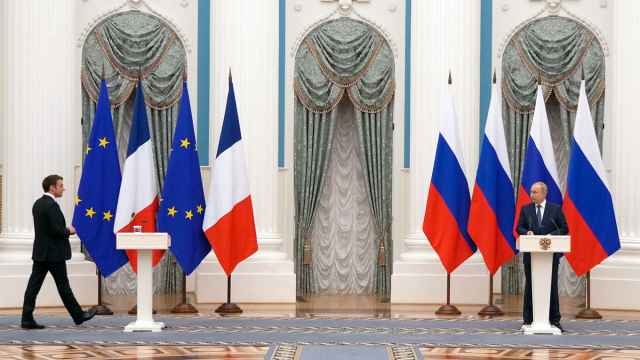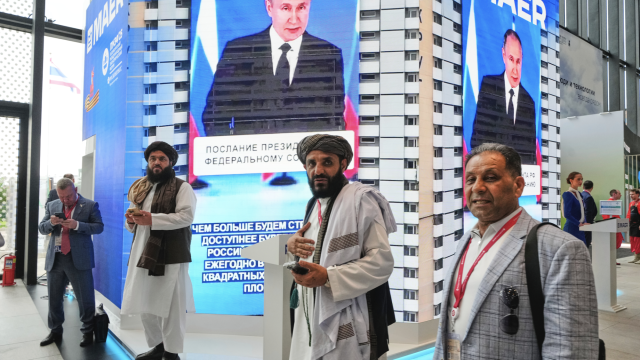Hours after Prime Minister Dmitry Medvedev announced the list of banned food imports from the European Union, U.S. and other countries, the Federation Council called for an extension of the ban to include imported vehicles and medications, and to make it more expensive for Russians to vacation abroad.
Nikolai Zhuravlyov, deputy head of the upper house of parliament's budget and financial markets committee, said Thursday that President Vladimir Putin's import ban, a response to Western sanctions, was not enough, according to Newsru.com.
"Our government has not yet exhausted its resources for responsive measures, the introduction of which would have a positive impact on the domestic economy," Zhuravlyov was cited as saying.
The senator suggested banning imported vehicles, as well as medications for which there is a Russian equivalent.
"In addition, restrictions could be applied to consulting services and franchising. We should also support domestic tourism by increasing taxes for Russians who go on vacation overseas," Zhuravlyov said, Newsru.com reported.
"Talking with Russia in the language of sanctions is impossible to do forever, and our response must motivate our Western partners to begin a balanced dialogue on both economic and political issues," the senator said.
He also praised the import ban as a "unique opportunity" for domestic producers, as it would allow them to increase their market presence, the news website reported.
The list of banned goods published by the Russian government Thursday could still be expanded, RBC newspaper reported Friday, citing two unidentified officials involved in the list's preparation.
See also:
A Message from The Moscow Times:
Dear readers,
We are facing unprecedented challenges. Russia's Prosecutor General's Office has designated The Moscow Times as an "undesirable" organization, criminalizing our work and putting our staff at risk of prosecution. This follows our earlier unjust labeling as a "foreign agent."
These actions are direct attempts to silence independent journalism in Russia. The authorities claim our work "discredits the decisions of the Russian leadership." We see things differently: we strive to provide accurate, unbiased reporting on Russia.
We, the journalists of The Moscow Times, refuse to be silenced. But to continue our work, we need your help.
Your support, no matter how small, makes a world of difference. If you can, please support us monthly starting from just $2. It's quick to set up, and every contribution makes a significant impact.
By supporting The Moscow Times, you're defending open, independent journalism in the face of repression. Thank you for standing with us.
Remind me later.





